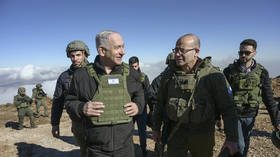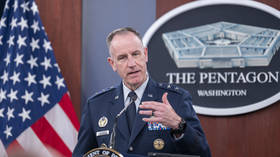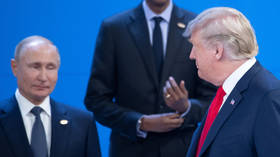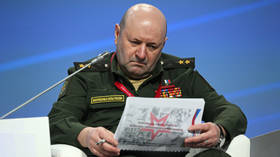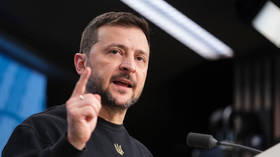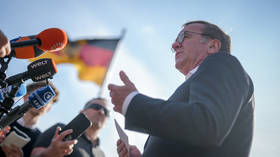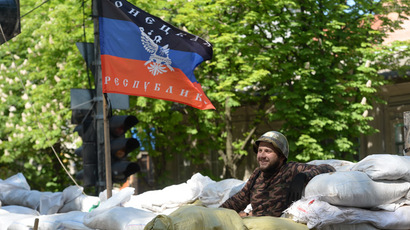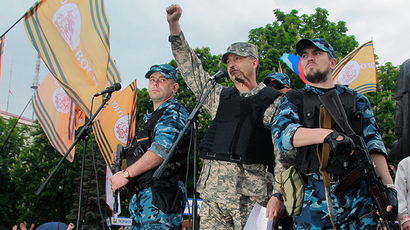Ukraine vote with ongoing military op may deepen crisis – Moscow
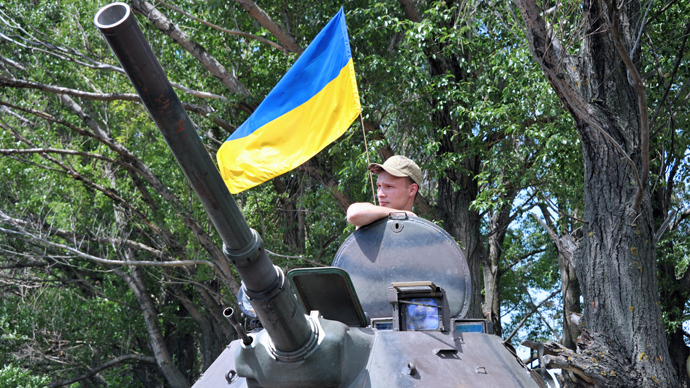
May 25th presidential vote in Ukraine may aggravate the crisis if military operations in the south-eastern regions are not halted and the OSCE road map drawn to settle the situation is not implemented, Russian deputy foreign minister has said.
Grigory Karasin also underlined the necessity for a nationwide dialogue to discuss constitutional reform in Ukraine in accordance with the April 17 Geneva agreements reached during talks between Russia, Ukraine, the EU, and the US.
“Without the implementation of the agreements that were reached, and the immediate cessation of the military units' actions in the southeastern regions, the upcoming elections on May 25 can only worsen the differences in the country,” Karasin said at a meeting with the British Ambassador to Russia Tim Barrow, the foreign ministry cited in a statement.
The Russian side voiced concern over the ongoing military operation in south-east Ukraine, which “blocks any real steps to deescalate the situation in the county,” the statement reads.
The two diplomats discussed how the international community can help to find a way out of the crisis in the former Soviet republic.
The unrest began in November last year, after President Viktor Yanukovich put on hold the signing of the association agreement with the European Union, because, as he explained, at that moment it would be against national interests. The decision triggered months of fierce protests on Kiev’s Maidan square which ended with a February coup and the ouster of Yanukovich.
Since then, bloody unrest has moved to eastern Ukrainian regions where many oppose the new Kiev government and want more autonomy. The new Ukrainian authorities, in response, deployed military forces to the rebel territories to suppress protesters, or “terrorists” and “separatists” as the Kiev government refers to them.
On Tuesday, the Ukrainian parliament called for an end to the military operation in the country’s east and hold immediate talks on constitutional reform which would grant the status of the Russian language and give broad powers to regions. However, this is yet to materialize into any concrete steps on Kiev’s behalf.
Meanwhile, the self-proclaimed Donetsk and Lugansk “people’s republics” said they would not hold elections.
Lugansk parliament Monday banned the presidential vote and campaign and, also, halted the activities of election commissions since they are “illegal” on the republic’s soil, reported Interfax.
Donetsk said it will not recognize the election results.
“Here is a sovereign state – Donetsk People’s Republic. We are entitled to decide ourselves what will be done on our territory,” the republic’s press-service told Itar-Tass on Saturday. “We consider Ukraine’s attempt to have elections here as an activity of another state on an occupied territory.”
Ukrainian Interior Minister admitted that it will not be possible to hold elections in a number of districts in both Lugansk and Donetsk regions.
“We are fully aware…that it will no longer be possible to hold in a normal way elections on the vast territory of Donesk and Lugansk regions,” Arsen Avakov told a media conference on Monday, as cited by RIA Novosti. However, he added, elections will still take place on May 25 in several districts.
Donesk and Lugansk proclaimed self-rule following May-11 referendums, which were labeled as illegal by Kiev and the West. The Ukrainian coup-imposed government listed the republics as ‘terrorist’ organizations and launched criminal cases to investigate their formation.
Russia’s President Vladimir Putin said earlier that the elections itself “is a movement in a right direction.” But “it won’t solve anything if all Ukrainian citizens will not understand how their rights will be guaranteed after the holding of this presidential vote,” he said May 7, after a meeting with Swiss President Didier Burkhalter, the Chairman-in-Office of the OSCE.


